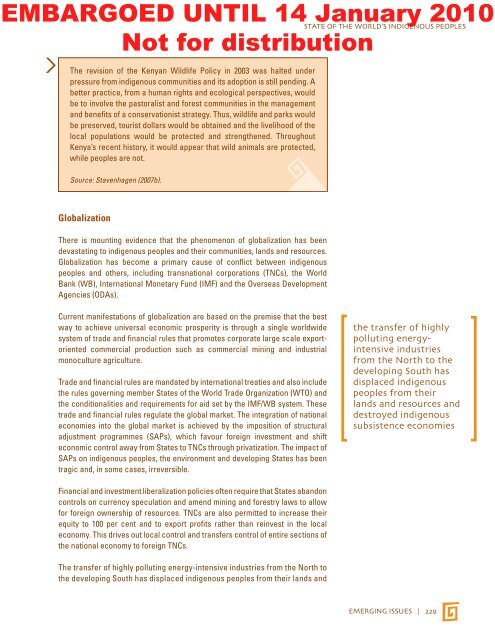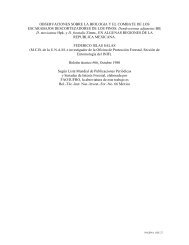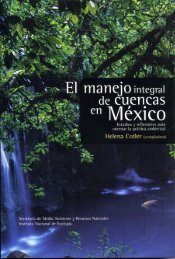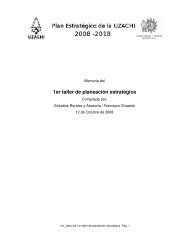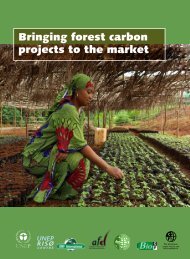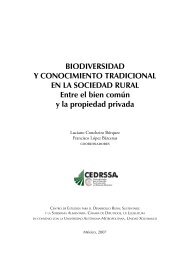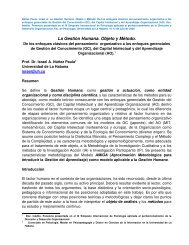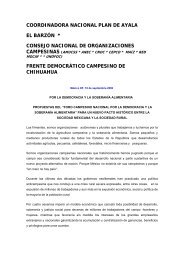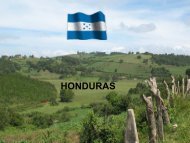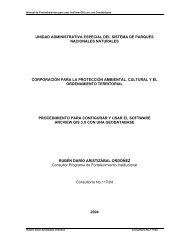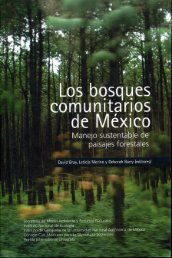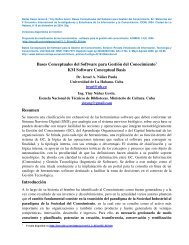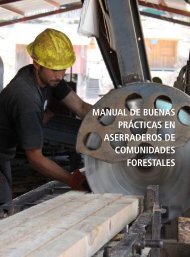STATE OF THE WORLD's INDIGENOUs PEOpLEs - CINU
STATE OF THE WORLD's INDIGENOUs PEOpLEs - CINU
STATE OF THE WORLD's INDIGENOUs PEOpLEs - CINU
- No tags were found...
Create successful ePaper yourself
Turn your PDF publications into a flip-book with our unique Google optimized e-Paper software.
EMBARGOED UNTIL 14 January 2010<strong>STATE</strong> <strong>OF</strong> <strong>THE</strong> WORLD’S INDIGENOUS PEOPLESNot for distributionThe revision of the Kenyan Wildlife Policy in 2003 was halted underpressure from indigenous communities and its adoption is still pending. Abetter practice, from a human rights and ecological perspectives, wouldbe to involve the pastoralist and forest communities in the managementand benefits of a conservationist strategy. Thus, wildlife and parks wouldbe preserved, tourist dollars would be obtained and the livelihood of thelocal populations would be protected and strengthened. ThroughoutKenya’s recent history, it would appear that wild animals are protected,while peoples are not.Source: Stavenhagen (2007b).GlobalizationThere is mounting evidence that the phenomenon of globalization has beendevastating to indigenous peoples and their communities, lands and resources.Globalization has become a primary cause of conflict between indigenouspeoples and others, including transnational corporations (TNCs), the WorldBank (WB), International Monetary Fund (IMF) and the Overseas DevelopmentAgencies (ODAs).Current manifestations of globalization are based on the premise that the bestway to achieve universal economic prosperity is through a single worldwidesystem of trade and financial rules that promotes corporate large scale exportorientedcommercial production such as commercial mining and industrialmonoculture agriculture.Trade and financial rules are mandated by international treaties and also includethe rules governing member States of the World Trade Organization (WTO) andthe conditionalities and requirements for aid set by the IMF/WB system. Thesetrade and financial rules regulate the global market. The integration of nationaleconomies into the global market is achieved by the imposition of structuraladjustment programmes (SAPs), which favour foreign investment and shifteconomic control away from States to TNCs through privatization. The impact ofSAPs on indigenous peoples, the environment and developing States has beentragic and, in some cases, irreversible.the transfer of highlypolluting energyintensiveindustriesfrom the North to thedeveloping South hasdisplaced indigenouspeoples from theirlands and resources anddestroyed indigenoussubsistence economiesFinancial and investment liberalization policies often require that States abandoncontrols on currency speculation and amend mining and forestry laws to allowfor foreign ownership of resources. TNCs are also permitted to increase theirequity to 100 per cent and to export profits rather than reinvest in the localeconomy. This drives out local control and transfers control of entire sections ofthe national economy to foreign TNCs.The transfer of highly polluting energy-intensive industries from the North tothe developing South has displaced indigenous peoples from their lands andEMERGING ISSUES | 229


